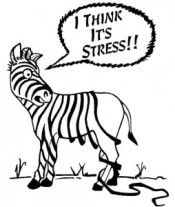
10 years ago · Leah Fogt · Comments Off on Be kind to yourself!
Be kind to yourself!
Do you ever struggle with feelings of insecurity, self-doubt, or low self-esteem? Many people who have trouble with depression or anxiety struggle with these feelings on a regular basis, and let’s face it, feeling that way can be pretty miserable. These unpleasant emotions often begin with unhelpful thoughts, especially self-criticism or negative self-talk. One way to begin to improve our moods is by challenging these unhelpful ways of thinking.
Every day, all day our minds are forming perspectives and beliefs about ourselves and the world around us. There’s that voice in the back of our heads that gives us a running commentary of the day’s events. Do you ever pay attention to that voice and what it says? If you feel insecure, doubt yourself, or lack confidence, that voice in the back of your head might be saying some pretty mean things to you!
For example, when you look in the mirror in the morning, what do you think? Do you think, “Well this is as good as it’s gonna get” or something more positive like, “I am beautiful because of who I am and the things I can do?” If you make a mistake, are you quick to name-call and put yourself down? Do you call yourself a dummy?
Speaking to ourselves in this way only increases a sense of shame, so it’s important to take charge of this kind of thinking.
Think about it. If a stranger in the grocery store saw you drop a jar of spaghetti sauce making a big sloppy red splatter on the tile, you would likely be offended if they said, “You idiot! Be careful!” We do not tolerate unkindness from others, why do we tolerate if from ourselves?
Consider the little children you might know – perhaps your own child, grandchild, niece/nephew, neighbor, or friend. Imagine that cute little face full of innocence. You probably wouldn’t tell that child they are stupid, ugly, clumsy, or foolish. It would make them cry – not to mention be damaging to them and potentially verbally abusive. Instead you would speak gently and encouragingly to that little one, maybe still making a correction but doing so kindly. The thing is self-criticism is just as damaging to us. If we wouldn’t say it to a little child, we probably shouldn’t say it to ourselves.
If you think you might have a harmful habit of self-criticism, you might want to start to challenge that voice in your head and replace its commentary with something a little more uplifting and charitable. If you observe a moment of negative self-talk, catch yourself doing it and then try to find a more constructive and encouraging thing to say.
Breaking the habit of negative-self talk is a challenging one, and sometimes can require therapy to help identify alternative perspectives and restructure how we think. This doesn’t mean lying to ourselves or sugar-coating things. Rather, it means that we evaluate our perspectives to be sure they are accurate, grounded in reality, and supported by evidence, as opposed to emotions only.
Our words matter. What we say to others can have a great influence on their day and their mood. The same is true for what we say to ourselves! Be kind to yourself!








